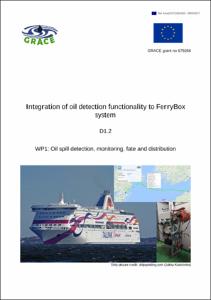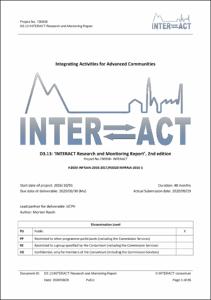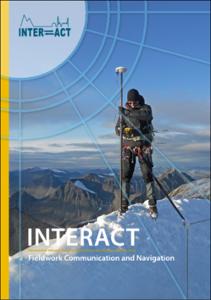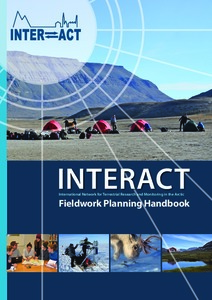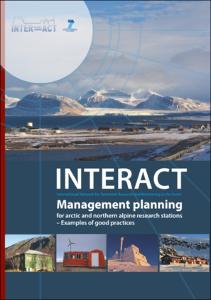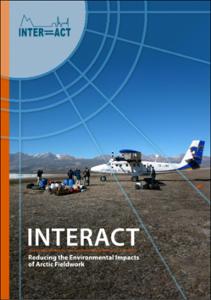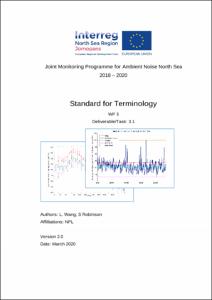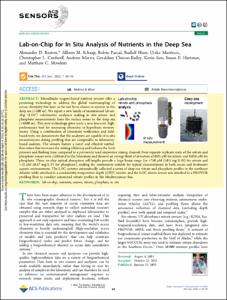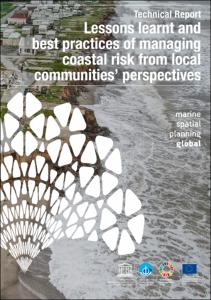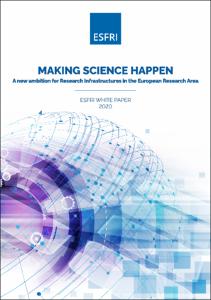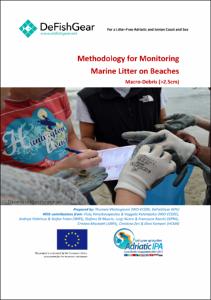Browsing European Union Funded Practices by Title
Now showing items 53-72 of 120
-
Integration of oil detection functionality to FerryBox system. GRACE WP1, D1.2. Verson 1.2.
(Finnish Environment Institute (SYKE) for GRACE Project, 2017)Our knowledge of the ocean is limited by our observational ability. To better understand and manage the oceans and the coastal systems, there is a clear need for environmental data of higher spatial and temporal resolution. ... -
INTERACT Research and Monitoring Report 2020. D3.13. 2nd edition
(INTERACT Consortium, 2020)The Arctic is still an understudied part of the world, and restricted access or lack of infrastructure makes arctic research more complicated than elsewhere. Coordinating activities, implementing standards and data ... -
INTERACT Fieldwork Communication and Navigation.
(Aarhus University, DCE – Danish Centre for Environment and Energy, Aarhus, Denmark, 2021)When preparing for fieldwork, there is a wealth of things to keep in mind and to make decisions about. Communication and navigation are essential elements of conducting science in cold and remote areas of the world. ... -
INTERACT Fieldwork Planning Handbook.
(Aarhus University, DCE – Danish Centre for Environment and Energy, Denmark, 2019)The INTERACT Fieldwork Planning Handbook has been produced within the framework of the EU Horizon 2020 infrastructure project INTERACT. It aims to ensure that you are well prepared for fieldwork at INTERACT stations and ... -
INTERACT Management planning for Arctic and northern alpine research stations – Examples of good practices.
(Aarhus University, DCE – Danish Centre for Enviroment and Energy, Aarhus, Denmark, 2014)This book is about management of arctic and northern alpine research stations. It has been produced by a group of station managers participating in the EU 7th Framework Programme Infrastructure project called INTERACT. ... -
INTERACT Practical Field Guide.
(Aarhus University, DCE – Danish Centre for Environment and Energy, Denmark, 2019)The INTERACT Practical Field Guide contains information on best practices and safety aspects in relation to fieldwork in the Arctic. Its eight chapters address general safety guidelines; communication; safety during ... -
INTERACT Reducing the Environmental Impacts of Arctic Fieldwork.
(Aarhus University, DCE – Danish Centre for Environment and Energy, Aarhus, Denmark, 2021)The environmental impacts of fieldwork at and around research stations may be small in comparison to the impacts of all other human activities and in relation to the often vast and remote areas in which the fieldwork ... -
JOMOPANS standard: Terminology for ambient ocean noise monitoring.
(Joint Monitoring Programme for Ambient Noise North Sea (JOMOPANS), 2020)The aim of this project is to develop a framework for a fully operational joint monitoring programme for ambient noise in the North Sea. Output will be the tools necessary for managers, planners and other stakeholders to ... -
Lab-on-Chip for In Situ Analysis of Nutrients in the Deep Sea.
(2022)Microfluidic reagent-based nutrient sensors offer a promising technology to address the global undersampling of ocean chemistry but have so far not been shown to operate in the deep sea (>200 m). We report a new family ... -
Lessons learnt and best practices of managing coastal risk from local communities’ perspectives.
(UNESCO-IOC, Paris, France, 2021)The objective here is to present how various hazards affecting coastal areas impact the local communities in selected countries, and how these matters are being managed by national, regional and local governmental in ... -
Making science happen: A new ambition for Research Infrastructures in the European Research Area.
(European Strategy Forum on Research Infrastructures, Brussels, Belgium, 2020)The European Strategy Forum on Research Infrastructures (ESFRI) was established in 2002 with the purpose of developing a European approach to Research Infrastructure policy as a key element of the emerging European Research ... -
Marine Debris: Understanding, Preventing and Mitigating the Significant Adverse Impacts on Marine and Coastal Biodiversity.
(Secretariat of the Convention on Biological Diversity, 2016)Marine debris is recognized as a globally significant stressor on the marine and coastal environment, with impacts on marine biodiversity having been reported over the last four decades. There are also socioeconomic ... -
Marine Plastics EOV and common sampling protocol: EuroSea Deliverable D1.5.
(EuroSea Project, 2022)This deliverable report describes the process of establishing global coordination for sustained observations of marine plastics debris as a new type of Essential Ocean Variable (EOV) which is the first in a new class of ... -
Maritime Sensor Technologies for the European Market: Research, Development and Implementation. Good practice guide.
(COLUMBUS Project / EuroGOOS, Brussels, Belgium, 2018)This COLUMBUS guide was developed as a result of discussions with COLUMBUS and AtlantOS project partners, speakers and participants at the COLUMBUS Brokerage Events ‘Knowledge Transfer in Maritime Sensing ... -
The MARLISCO Guide for Reducing Marine Litter: Get Inspired and Become Innovative Through Best Practices.
(Isotech Ltd for MARLISCO Project, Nicosia, Cyprus, 2014)This guide does not aim to reinvent the wheel! It is based on a collection of best practices for the reduction of marine litter recorded from across Europe within the project MARLISCO (www.marlisco.eu). This document ... -
Measuring and analysing the directional spectra of ocean waves.
(Office for Official Publications of the European Communities, Luxembourg, 2005)The importance of directional wave information has been recognised for a long time. However, for decades good measurements of directional spectra were limited almost exclusively to special research campaigns. ... -
MEDITS-Handbook. Version n. 9, 2017.
(MEDITS Project, 2017)This document is the ninth version of the first manual elaborated in the frame of the MEDITS international project to harmonise the sampling of demersal resources in the Mediterranean Sea. It is the reference document for ... -
Menu of Co-creation Methods. Deliverable 3.1.
(Centre for Genomic Regulation for ORION Project, Barcelona, Spain, 2017)The ORION project seeks to promote institutional change in life science research performing and research funding organisations by performing co-creation experiments. Co-creation experiences are a way in which to connect ... -
Methodology for Monitoring Marine Litter on Beaches: Macro-Debris (>2.5cm).
(MIO-ECSDE, DeFishGear, Athens, Greece, 2017)The following methodology has been prepared based on the EU MSFD TG10 “Guidance on Monitoring of Marine Litter in European Seas (2013)”, the OSPAR “Guideline for Monitoring Marine Litter on the Beaches in the OSPAR Maritime ... -
Monitoring and assessment guidelines for marine litter in Mediterranean MPAs. Technical report of the Interreg/ MED/AMARE project.
(Ifremer/AMARE, Bastia, France, 2015)As part of the AMARE project, the main purpose of this report is to provide advice and practical guidance, for establishing programmes to monitor and assess the distribution and abundance of marine litter in MPAs. The ...
 Repository of community practices in Ocean Research, Applications and Data/Information Management
Repository of community practices in Ocean Research, Applications and Data/Information Management
